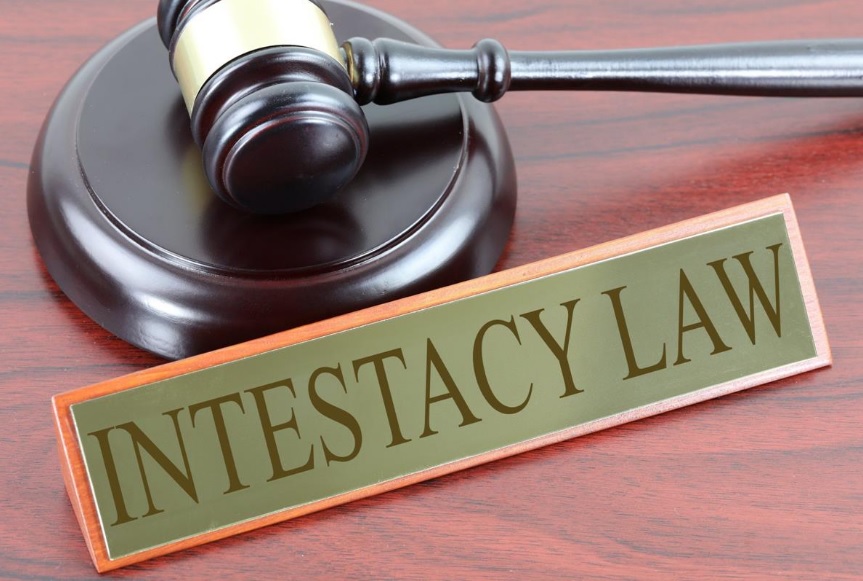
Fighting over what people left behind happens a lot now. Families often find themselves in arguments about inheritance. Peaceful sharing of money and stuff after death often ends in court. Real families feel this problem causing big stress when things are different. Numbers definitely show how this fighting keeps going up.
Looking closely at data coming from places like the UK clearly. Estates with no will, they call them intestate, went way up. More than fifty thousand last year saw this happen, the MoJ says. That’s like a seventeen percent increase total, hitting a high. This rise connects right up to more family fighting over inheritances. No will just leaves assets hanging but makes families fight easily.
When a person passes on without a real, valid will, assets need to be sorted out, okay? Valuable things like property or money are subject to tight legal frameworks. Court steps in, sometimes giving a ‘grant of letters of administration’. Someone gets a job managing an estate, and then it might seem simple. But things go differently from what the dead person wanted here.
Assets get shared using special rules called intestacy rules. These rules provide a default way, yet outcomes surprise people. Imagine money goes to a spouse you hate or maybe a distant relative. Or money even goes to the government if there is no trace of family. Strict law follows blood, not what you wished or loved. Personal wishes of informal partners are often completely missed out on this way.

Expert David Lunn talks about the human cost of this problem a lot. Dying with no valid will means big distress and confusion for loved ones. Leads to things happening totally not as the person hoped they would. His insight shows no will creates empty space the law rush fill. Sometimes results end up hurting people who stayed behind hard.
Lunn also explains that law favors formal legal ties the most. Rules make little help for partners not married or registered. Unmarried partners could often miss inheriting important possessions totally. This vital point is that anyone in a long-term commitment without marriage knows. If you want your partner to inherit, you cannot just rely on intestacy rules. He advises that if a serious relationship outside marriage is needed, it will happen now. It is a clear message from seeing the rough truth intestacy often brings.
More no wills and more feuds make sense, the public thinks also. A report by lending firm Probate Level Group found this thing. A big part of the people in the UK are prepared to take disputes to court sometimes. Almost two in five, forty-eight percent, say they would sue, okay. If inheritance felt not fair, they were expected to go the legal route quickly. This shows people willing to challenge distribution outcomes are easy to see. Highlights how inheritances can cause lots of fights nowadays.

Even against odds, some persons still fight for what they believe. The report mentioned eight percent would fight inheritance even if they might lose. This speaks to deep emotions and personal stakes in these matters. It’s not just about money received, you see; often it is. More about perceived fairness, feeling you deserve recognition, maybe.
Breaking data down shows who is most likely to consider legal action. The younger generation, twenty-five to thirty-four, is most willing to dispute a will. Sixty percent indicate readiness to do this thing if needed. Men showed a higher chance of taking this step versus women sometimes. Forty-four percent of men and thirty-four percent of women said yes to court.
Not everyone who says they dispute actually follows through always, but figures show. Notable numbers are already gone; court seven percent did it. A further twenty-two percent say they might depend on situation details. These figures picture public awareness of rights and willingness to use legal ways.

Ministry of Justice numbers—they back up the formal dispute trend. Court fights over probate have increased by a good amount in the past ten years. Comparing data from twenty twenty-three to twenty fourteen, the total increase is thirty-seven percent. Two thousand twenty-three alone saw an eight hundred sixty-seven disputes monthly average. Worryingly, recent data shows the trend goes faster, you see. An average of nine hundred ninety-two disputes each month started in two thousand twenty-four. Shows not just willing to dispute actual cases entering court, adding burden.
Adding problem MoJ stats show probate cases take a longer period. Not just disputed ones are taking a lot of time nowadays, you know. The number of cases dragging on for over a year has seen a big dramatic rise. Five hundred eighteen percent increase in the last five years is a staggering amount. Means families face potential fights and also long periods of uncertainty financially.
Expert George Williamson, founder of a lending firm, stresses something vital, everybody. New figures highlight a concerning rise in probate disputes now. Makes engaging in a proactive, thorough estate planning process a lot more important. His crucial point shows the real consequence of failing to plan ahead.
Not planning leads to future disputes that may cause delays in probate stuff. Leaving families in financial uncertainty is not good. Planning ahead is not a morbid task; it is a profoundly responsible act of care. For loved ones you wish to protect from potential chaos, cost always. Dying without a clear voice in the future of your estate, you see.

Real-life examples illustrate complex emotional nature disputes here. Consider the legal battle involving Kellie Pickler and Kyle Jacobs parents. After Kyle died, his parents asked for personal belongings, okay? Items like guns, watches, and jewelry have not just money value always. The attorney notes these disputes are often fueled by sentimental value most. This shows sharing personal things can easily cause big trouble.
Crowder explained these simple possession disputes sometimes become ‘proxy wars’. For family members, work out long-standing issues from before death, okay? Suggests inheritance can become a place for old family tensions to show up. Sharing assets, especially sentimental ones, becomes a point for deeper conflicts.
Core issue The Pickler case determines ownership of certain items, it seems. Lack of clarity of ownership while alive creates big problems after death occurs. Crowder says if Pickler claims items were hers, they were taken wrong. Administrators generally can take deceased property if they are authorized. But maybe acted improperly here, possibly, you know, it could be.
Determining ownership can be a complex process sometimes, which is true. Might involve tracing where money for purchases came from, you see. Or interpreting agreements like prenuptial and postnuptial papers is okay. Pickler Jacobs reportedly had prenups with parents using the same argument now. Such agreements are crucial for defining property rights in death, not just divorce.
The court likely needs to interpret this agreement to resolve ownership questions, too. Property belonging to deceased administrators has the right to collect it all. Maybe even sell items to cover debts and expenses before giving to heirs.
Default law: absent children, a spouse typically gets the entire estate, okay? Crowder points out that spousal inheritance rights alter contracts like prenups, you know. Underscores default laws exist; personal agreements hold big weight sometimes. They override standard inheritance outcomes often, for sure. The Pickler case, with its focus on personal items and family dynamics, is a good example of how hard it is. Shows complex emotional, fraught disputes become even more so before wider family structures.
Another case shows the devastating potential of inheritance disputes—a sad story. The Fuss family of Georgia’s DeKalb County provides an illustration of this point. Following the death of patriarch Bill Fuss, tensions went way up, family. He left nearly five hundred thousand jewelry assets without a will, okay. His wife, Jackie, decided not to distribute the inheritance right away. They intended to use the money to care for their mentally ill adult son, Charles—a good plan. This decision reportedly did not sit well with the other siblings much.

The former reporter covering the case noted the siblings were ‘fuming’ mad. Situation highlights lack of clear will cause conflict even with reasonable desire to help. Especially when big assets are involved, it is a lot of money too. The detective observed that while Jackie was alive, she maintained control some times. But when she killed, there was nothing left to keep children in line then. Emphasizes fragility, relying on one-person management, not a formal plan, always.
Inheritance became a source of long legal conflict for sure then. No, some family members felt they were rightful heirs, it seems. Legally required to fight through the court system intestacy rules way. The dispute lasted three years; all the siblings hired lawyers to protect their share. David Fuss’s wife, Kelly, is drawn into the mess just by marriage also. The detective described marrying into a very exceptionally dysfunctional family, you see. No reasonable person might question choices in circumstances like that, maybe.
Fuss case, big estate, dependent adult care, family structure perceptions, and a lot. The lengthy legal battle served as a stark warning. Everybody today, listen. While context hints at darker turns, greed convictions are a sure thing, which is sad. A core inheritance dispute over assets left without a will powerfully shows chaos then. Illustrates potential conflict when estate planning is neglected; it really does. Lack of clear direction unravels family harmony and creates deep divisions fast.

Complex cases need different laws understood well. Various legal systems handle families in diverse ways. This text looks mostly at common law countries. But also introduces Indian law rules too. About second marriages and property rights there. Law is very detailed always. It depends on your situation specifically.
Hindu law in India has rules. A second marriage is valid only if. First spouse died or divorced legally. A valid second wife gets the same rights usually. Like the first wife would have had there. In a void marriage, the wife gets few rights. Ancestral property rights are small then.
Courts have different views on what void marriage wives need. They might get money if she was unaware. Children born in a second marriage have simpler rights. Legitimate kids get equal share always. Same as children from the first marriage there. Hindu law says these kids are legit. They are Class-1 legal heirs usually.
India defines clear heir categories. Class-1 and Class-2 heirs matter here. Class-1 get property first always. This includes widows, children, and mothers. Class 2 inherits only if there is no Class 1. This order can miss people you want. Joint property adds problems too.
Indian law details are a reminder always. Complex families and marriages interact here. Different laws meet inheritance rules too. Relying on default rules is bad then. It always causes unexpected problems. Conflicts happen much more easily.
Planning ahead is needed much now. It is not just recommended simply. A will ensures wishes are followed well. Prevent problems and confusion before they happen. Avoid court if possible, maybe. Minimize disputes risk greatly too. Other tools help, like prenups, clearly.
How assets are divided is your choice. Not default rules or chance, maybe. Not court battles deciding things for you. Planning always brings peace of mind. It is final love act truly. Legacy should reflect your wishes always. Prevent conflict and protect the future now.
Related posts:
Estates without a will hit five-year high – as two in five Brits prepared to go to court over inheritance
Property Rights of Second Wife and her Children in India in 2025
Kyle Jacobs’ Estate Dispute: Kellie Pickler vs. In-Laws Explained



